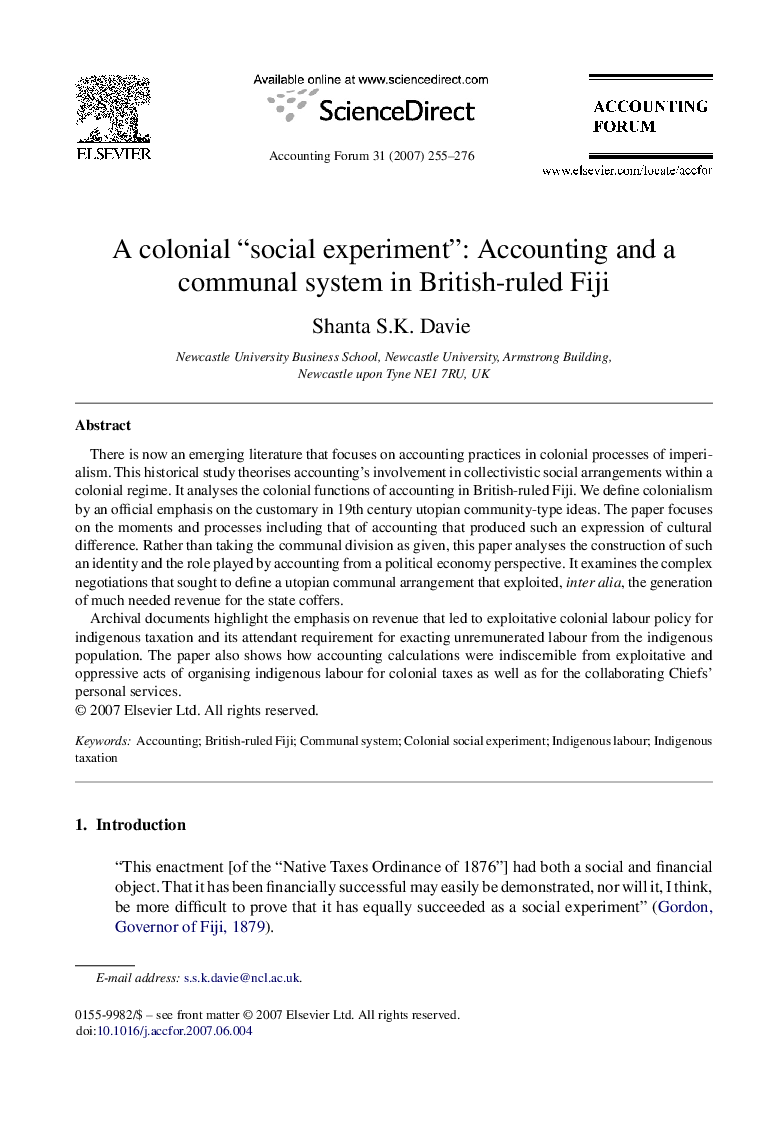| Article ID | Journal | Published Year | Pages | File Type |
|---|---|---|---|---|
| 1003870 | Accounting Forum | 2007 | 22 Pages |
There is now an emerging literature that focuses on accounting practices in colonial processes of imperialism. This historical study theorises accounting's involvement in collectivistic social arrangements within a colonial regime. It analyses the colonial functions of accounting in British-ruled Fiji. We define colonialism by an official emphasis on the customary in 19th century utopian community-type ideas. The paper focuses on the moments and processes including that of accounting that produced such an expression of cultural difference. Rather than taking the communal division as given, this paper analyses the construction of such an identity and the role played by accounting from a political economy perspective. It examines the complex negotiations that sought to define a utopian communal arrangement that exploited, inter alia, the generation of much needed revenue for the state coffers.Archival documents highlight the emphasis on revenue that led to exploitative colonial labour policy for indigenous taxation and its attendant requirement for exacting unremunerated labour from the indigenous population. The paper also shows how accounting calculations were indiscernible from exploitative and oppressive acts of organising indigenous labour for colonial taxes as well as for the collaborating Chiefs’ personal services.
